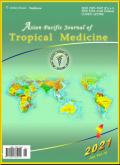Informing policy makers in developing countries: Practices and limitations of geriatric home medication review in Malaysia-A qualitative inquiry
IF 1.9
4区 医学
Q3 PUBLIC, ENVIRONMENTAL & OCCUPATIONAL HEALTH
引用次数: 0
Abstract
To explore existing practices and challenges in the delivery of geriatric home medication review (HMR). The study was part of a larger study aimed to offer solution to expand the range of geriatric HMR. This study employed qualitative exploratory design through semi-structured individual in-depth interviews with the public pharmacists involved in the delivery of geriatric HMR at public hospitals. The purpose of the interviews was to explore challenges faced by them in the delivery of geriatric HMR. Based on the emerging themes from the qualitative data, the study reveals that geriatric HMR in Malaysia is integrated as part of multidisciplinary home care visits, encompassing a diverse patient population with various healthcare needs. However, it faces challenges such as the lack of outcome monitoring, formal training, and workforce constraints. Despite these hurdles, there is a pressing need for the expansion of this service to better serve the community, and collaboration with community pharmacists holds potential to broaden its scope. Ultimately, the findings suggest that pharmacist- led HMR is both warranted and feasible within the Malaysian healthcare context. In order to optimize medicine-use among older people living in the community, approaches for expanding geriatric HMR services in Malaysia must be developed. This study holds profound implications as it attempts to illuminate policy makers in developing countries, enabling them to formulate effective HMR plans. By considering the challenges highlighted within this research, policy makers can design a comprehensive HMR service that caters adeptly to the healthcare needs of the mass population.为发展中国家的决策者提供信息:马来西亚老年家庭用药审查的实践与局限性--定性调查
探讨在提供老年家庭用药审查(HMR)方面的现有做法和挑战。本研究是一项大型研究的一部分,旨在为扩大老年家庭用药指导范围提供解决方案。 本研究采用了定性探索设计,通过半结构化的个人深度访谈,采访了在公立医院参与老年家庭用药指导的公共药剂师。访谈的目的是探讨他们在提供老年保健医疗服务时所面临的挑战。 根据定性数据中新出现的主题,研究显示,马来西亚的老年病 HMR 被整合为多学科家庭护理访问的一部分,涵盖了具有各种医疗保健需求的不同患者群体。然而,它也面临着一些挑战,如缺乏结果监测、正规培训和劳动力限制等。尽管存在这些障碍,但迫切需要扩大这项服务,以更好地服务社区,而与社区药剂师的合作则有可能扩大服务范围。最终,研究结果表明,在马来西亚的医疗保健环境中,药剂师主导的 HMR 是有必要的,也是可行的。为了优化居住在社区的老年人的用药,马来西亚必须制定扩大老年 HMR 服务的方法。 本研究具有深远的意义,因为它试图为发展中国家的决策者提供启示,使他们能够制定有效的 HMR 计划。通过考虑本研究中强调的挑战,政策制定者可以设计出一种全面的 HMR 服务,以满足大众的医疗保健需求。
本文章由计算机程序翻译,如有差异,请以英文原文为准。
求助全文
约1分钟内获得全文
求助全文
来源期刊

Asian Pacific journal of tropical medicine
PUBLIC, ENVIRONMENTAL & OCCUPATIONAL HEALTH-TROPICAL MEDICINE
CiteScore
4.00
自引率
9.70%
发文量
1936
审稿时长
3-8 weeks
期刊介绍:
Asian Pacific Journal of Tropical Medicine (ISSN 1995-7645 CODEN: APJTB6), a publication of Editorial office of Hainan Medical University,is a peer-reviewed print + online Monthly journal. The journal''s full text is available online at http://www.apjtm.org/. The journal allows free access (Open Access) to its contents and permits authors to self-archive final accepted version of the articles on any OAI-compliant institutional / subject-based repository.
APJTM aims to provide an academic communicating platform for international physicians, medical scientists, allied health scientists and public health workers, especially those of the Asia-Pacific region and worldwide on tropical medicine, infectious diseases and public health, and to meet the growing challenges of understanding, preventing and controlling the dramatic global emergence and re-emergence of infectious diseases in the Asia-Pacific.
The journal is proud to have an international and diverse editorial board that will assist and facilitate the publication of articles that reflect a global view on tropical medicine, infectious diseases and public health, as well as emphasizing our focus on supporting the needs of public health practitioners. The APJTM will allow us to seek opportunities to work with others who share our aim, and to enhance our work through partnership, and to uphold the standards of our profession and contribute to its advancement.
 求助内容:
求助内容: 应助结果提醒方式:
应助结果提醒方式:


